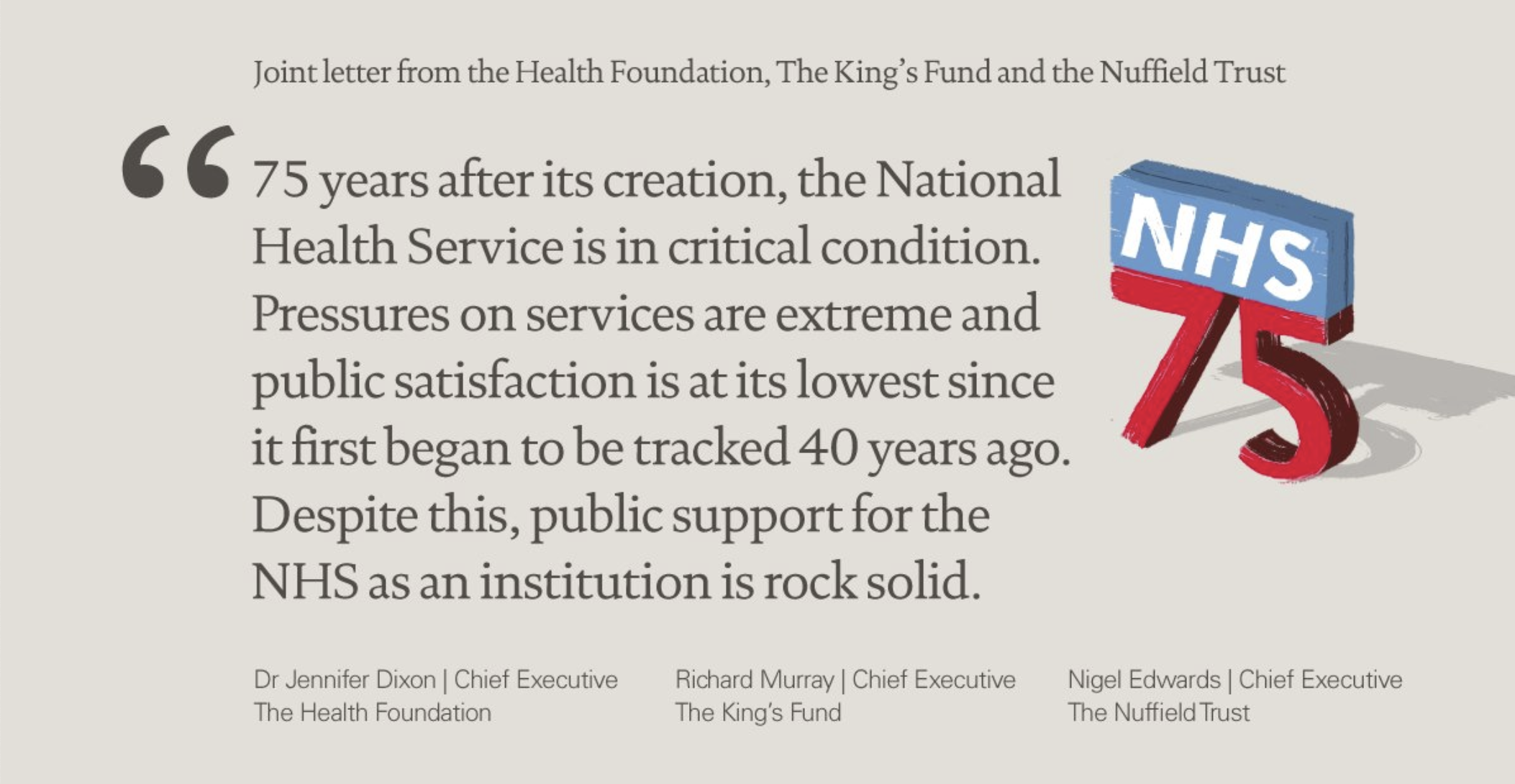Celebrating 75 years of the NHS
Today marks the 75th anniversary of when the labour party established the National Health Service (NHS). To celebrate, Social Care Today speaks to various charities involved within the health sector to discuss it’s achievements, challenges and future.
Although the NHS has been around for 75 years, the National Health Organisation arguably experienced their most turmoil period within the last five years. Faced with a global pandemic, three new governments and now a cost-of-living crisis, it’s safe to say the health body instils a determination and work ethic unlike any other.
However, despite the NHS exceeding expectations within the last few years, their previous achievements should not go amiss. Since 1948 – when the NHS was first established – the organisation has always evolved and adapted to meet the needs of each successive generation. From Britain’s first kidney transplant in 1960, to Europe’s first liver transplant in 1968.
Following this, the NHS has also delivered huge medical advances, including the world’s first liver, heart, and lung transplant in 1987, pioneering new treatments, such as bionic eyes and, in more recent times, the world’s first rapid whole genome sequencing service for seriously ill babies and children.
To this day, the NHS is a leader in adopting innovative medicines, with industry data showing there are now five treatments available in England for every four in Europe. Zooming in on this, the NHS has obtained almost a third more cancer drugs.
Dr Charmaine Griffiths, chief executive at the British Heart Foundation, said: ‘The NHS is close to all our hearts. Each of our families, our friends and our loved ones have needed the National Health Service, and for 75 years it has been there for us when we’ve needed it the most.
‘The British Heart Foundation is proud to have such longstanding links with the NHS and we are continually inspired by the commitment of NHS colleagues across the four nations.’
Dissecting issues within the NHS
Despite accomplishing various positive health achievements within the last 75 years, Dr Griffiths goes on to note that today, the NHS sees ‘huge challenges and opportunities alike.’
‘We are in the middle of a heart care crisis, with record numbers of people desperately waiting for the care they urgently need,’ Dr Griffiths said. ‘We also stand on the cusp of huge advances in technology and innovation that drive advances in diagnosis, treatment and care.’
Since last winter, scenes that would have been unthinkable within the NHS have become commonplace. As a result of the pressures pilled onto services from Covid-19 and the current cost-of-living crisis, last year more than 34,000 nurses left their role and according to the latest research, over 42,000 NHS staff voluntarily resigned in quarter two of this year – the highest number in any equivalent quarter over the last decade.
Due to a devastating number of vacant positions, hospital wait times have hit an all-time high, with patients being forced to be treated in the back of ambulances and in hospital corridors. In April 2023 figures from NHS England displayed an estimated 7.22 million people were waiting to start routine hospital treatment at the end of February, the highest total since records began in 2007.
Perhaps the most harrowing statistic to come out of the NHS crisis is in April 2023 it was found that thousands of children were experiencing ‘unacceptable’ long waits for NHS treatments putting them at risk of facing a ‘lifelong’ impact on their overall health. Shocking figures revealed that almost 15,000 paediatric operations were cancelled over the last year.
In a bid to address the NHS crisis, the current government have supplied various temporary fixes. From announcing plans to speeding up hospital discharges in a bid to free up more beds, to their latest NHS workforce plan, nothing authorities have curated has provided sufficient satisfaction.

However, as the NHS turns 75, three leading health and care research institutes have taken matters into their own hands. Today, experts issued a stark warning that continued quick political fixes to address complex and long-standing issues will risk the NHS not being able to reach its centenary.
The chief executives of the Health Foundation, Nuffield Trust and The King’s Fund have written to Rishi Sunak, Keir Starmer and Ed Davey, calling on them to make the upcoming general election a decisive break point, by ending years of short termism in NHS policy-making. They warn that the alternative is ‘managed decline that gradually erodes the guarantee of safety in place of fear it was designed to create’.
The letter states ‘75 years after its creation, the National Health Service is in critical condition. Pressures on services are extreme and public satisfaction is at its lowest since it first began to be tracked 40 years ago. Despite this, public support for the NHS as an institution is rock solid.’
The future of the NHS is digital
One successful solution that has been utilised since the NHS crisis began, is the introduction of using more technology. Organisations who work alongside the health sector, have created new devices allowing some patients to be treated at home, freeing up more space in hospitals.
For example, a company called Cera Care, announced a new digital software service in December last year which helped 80% of patients to be let out of hospital on the same day as being admitted.
In addition, birdie, a leading organisation dedicated to producing personalised home healthcare technology, have claimed that technology could help set the NHS back up for a successful future.
Rajiv Tanna, Co-founder & Chief Product Officer of birdie, said: ‘The NHS planned to follow a three-tier structure, first encompassing hospitals, then family doctors, dentists, opticians and pharmacists, and finally local authority health services. However, it’s frustrating to see how a lack of funding and execution has severely impacted all of these vital services, often leaving patients to navigate the services alone and many struggling to get the overall health and wellbeing advice they desire.
‘A lot has changed over the last 75 years. In particular, the change that has affected the NHS the most is the growth of our ageing population. We believe this unique challenge requires a new service approach, which leverages technology, to enable us as a society to provide our older relatives with the care they deserve.
‘With timely investments and adaptations, I remain hopeful that the NHS, in partnership with private innovative local care providers, can still fulfil its promises and ambitions.’
Images: Andy Holmes and The Health Foundation















